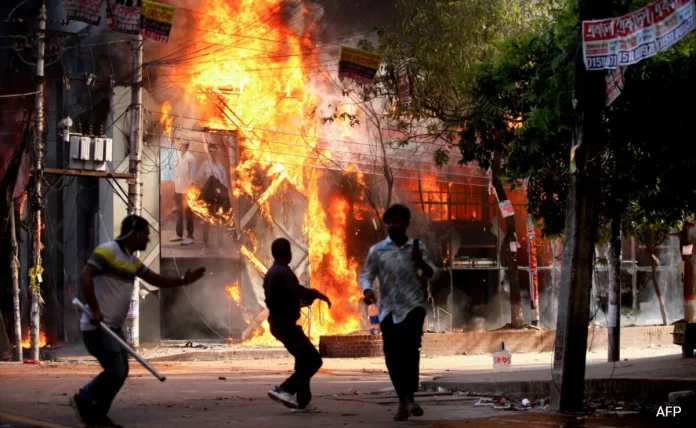Bangladesh Prime Minister Sheikh Hasina has resigned and left the country on Monday, as more people were killed in some of the worst violence since the birth of the South Asian nation more than five decades ago.
Amid escalating nationwide violence, Bangladeshi Prime Minister has departed Dhaka in a military helicopter, local media reported on Monday.
Hasina left her official residence, Bangabhaban, at approximately 2:30 p.m. local time. Reports suggest she is heading to West Bengal, India, although this has not been officially confirmed. The helicopter also carried Sheikh Rehana, Hasina’s younger sister.
The evacuation followed a significant escalation in unrest. The protesters breached the gates of Gono Bhaban, Hasina’s official residence, around 3 p.m. Thousands of demonstrators had gathered for the Anti-Discrimination Students’ Movement’s “March to Dhaka” at Mirpur 10 roundabout before advancing towards Farmgate.
Tensions were further heightened by the involvement of Army Chief General Waker-Uz-Zaman, who was reportedly pushed back while attempting to address the situation, according to the Inter Services Public Relations (ISPR).
The protests erupted following a demand from the Anti-Discrimination Student Movement for the resignation of Prime Minister Hasina and her cabinet members. This demand was announced at a rally at Central Shaheed Minar on August 3 by Nahid Islam, a key organizer of the movement.
Sheikh Hasina Flees
Hasina had previously extended an offer to the agitating students to meet at Gono Bhaban to discuss their grievances and seek to end the violence surrounding quota reform protests. Despite her offer, the protests continued to intensify.
Today’s “March to Dhaka” was rescheduled from its initial date and has been marked by calls for nationwide participation. The anti-discrimination student movement has also initiated a non-cooperation campaign, urging citizens to withhold taxes and migrant workers to avoid remittances via banks.
The unrest has resulted in at least 93 fatalities and numerous injuries, with many sustaining bullet wounds. Violence has surged as ruling Awami League supporters clashed with anti-government protesters, further straining the situation.
The unrest is rooted in demands for reforms to the quota system, which reserves civil service positions for specific groups, including descendants of 1971 war veterans. Protests intensified after a new policy allocated government jobs to descendants of freedom fighters, leading to attacks on state television and police stations in Dhaka.
Bangladesh has announced a three-day shutdown of public and private offices, including banks, in response to the ongoing crisis. The situation remains volatile as both pro- and anti-government groups prepare for further confrontation.

